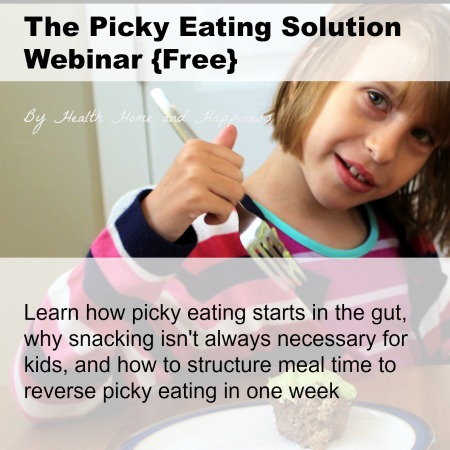Loading up on fun snacks from every imaginable source and then picking at the nutritious food that your parents serve at meals is a normal passage of childhood.
But should it be?
Constant snacking is interfering with most children’s (and adult’s!) ability to consume appropriate balanced meals. and interfering with their ability to focus on something other than food for an extended amount of time.
The worry about packing food, making meals that aren’t consumed, and catering to picky eaters is interfering with our ability to not only go on outings free from the burdens of having center every activity around food, but also it is contributing to food waste, and preventing us from consuming what we really need to be eating, when we need to eat it.
 Food should not be our only fun
Food should not be our only fun
“Are you doing soccer this year?” “Yeah, but just because I like the snacks”
When we are putting something in our mouth constantly, whether it’s a bite of candy from Grandma’s purse, popcorn at an afternoon movie, samples of ingredients during meal preparation, a few favored snacks after a big grocery shopping trip, crackers at play dates, or yes, snacks after soccer games, we are displacing other fun activities that could be happening.
The focus on snacks, and hope for ‘good’ snacks is preventing in our children from being able (and, let’s be honest, adults too!) to fully engage in physical or creative activities. Food, especially sugar and processed carbs, is not a benign substance. It actually starts a biological process (read more here) that sends signals to your brain to keep consuming it.
These signals are a distraction. They are distracting our kids, they are distracting us adults, and they threaten to rule our lives.
But we still need to eat, so what do we do about it?
Of course I’m not advocating that we don’t eat. I’m just advocating that we take a break from eating. For us, that means cutting out meals and unscheduled snacking. For the most part my children eat breakfast at 7:30, lunch at 11:30, a piece of fruit after school at 3:30 if dinner is going to be late, and dinner at 5:30 or 6. That’s it. I eat lunch and dinner, and have tea after the kids go to bed.
Doing this has freed up our life to LIVE, not focus on eating.
Two Square Meals a Day
It’s not just my kids- I’m healthier when I eat 2 square meals a day. That’s right. I don’t snack either, and I skip breakfast too.
The same people who championed grains, sugar and a high carb diet started the myth that links eating more small meals and being healthier.
When people who fund nutrition studies are the same people selling food, the results tend to skew towards finding results that encourage:
- Consumers to consume more of their product.
- Consuming what is inexpensive to produce.
 And then the weight aspect…
And then the weight aspect…
To be honest, every time I have weaned a toddler, I’ve gained weight. With three kids who were breastfed into toddlerhood, I have spent about 8 years requiring extra calories for breastfeeding and pregnancy. I got used to bigger meals, and since most of the food that we eat is not only nutrient-dense, it also is calorie dense, it can add up.
This nutrient density is a great support to growing kids, but the calorie density means that each meal can easily be 1000 calories, and three of those are more than most women will need.
I feel better skipping breakfast, having a solid lunch with my toddler before his nap, and eating a decent family dinner with the family.
Exceptions
Part of lightening up on the focus of food means that we can make exceptions to our ‘food rules’ for special occasions, or to work within our culture.
I LOVE going out to eat breakfast, so when we have guests from out of town, or a celebration in our own family, we often do that. Skipping breakfast isn’t a law, it’s just a general rule that works for my body.
Special Occasions: This means real special occasions- someone close to us is having a birthday, major holidays, weddings, etc. On special occasions we eat happily what is served (still avoiding any food allergies of course) when it is served. For us that means that we usually won’t be as hungry for our next meal, or the eating patterns of the day are disrupted. But these occasions happen infrequently, and they are an exception not a rule.
Take care to distinguish what is a real special occasion (Thanksgiving! Your sister’s wedding!) vs what is an excuse to eat unnecessary junk food (Chocolate cake day, Friday, someone lost a tooth, the coffee shop has a new pastry you haven’t tried, Tuesday, etc)
Like it or not, snacks very much are a part of our culture. In some cases I’ve taught my kids to just say ‘no thank you’ or bring something they know is not allowed to me. Some places we use this: The hair cutting place, soccer, camps, religious activities, and occasional school functions.
In others, like the snack time at school that is also designed as a social activity, I provide a low-calorie snack. Since they are low-calorie (about 50), these snacks don’t interfere with my children’s hunger for their actual meal, and lunch boxes still come back with the nutrient-dense food having been eaten. Our go-tos: Carrot sticks and sea weed packs.
Hormones (mine) and growth spurts (them) can dictate extra ‘true’ hunger. There are two days a month that I am absolutely starving, and I can choose to eat more or be hangry (grumpy due to hunger) those days. I choose to eat more. Likewise, when children grow, sometimes they are bottomless pits and happily consume loads and loads of nutrient-dense food. These children don’t pick at their meals and then ask for fruit, nuts, or whatever after meals. These children that are growing and legitimately hungry will eat 4 scrambled eggs, and then still be searching the kitchen for more. So I feed them.

Physical Activity: Hiking is another place that I break from my no snacking rule. Usually when we get to the hike destination, the kids get a piece of fruit, an Epic Bar, or a Lara Bar, or if it’s around lunchtime I’ll pack a picnic lunch that is higher in carbs than usual. Unless it’s lunchtime, I have no problem hiking (or running) fasted. This seems to be pretty individual, though in general the hormones produced during exercise naturally suppress hunger (source) though the gatorade commercials may have influenced you to think otherwise ;)
Other exceptions: If you have hormonal issues, are under the care of a physician for chronic health problems, have a history of disordered eating, are an athlete who engages in vigorous activity daily, or any other exceptions to the average person, you will want to seek advice from a qualified professional. I’m talking to the average moderately-healthy family here.
Benefits of Not Eating All Day Long
Our culture feasts. We don’t fast. We are often confused about what true hunger is, confusing the sensation of ‘I could eat’ with ‘I’m hungry!’ or we’ve been on the blood sugar high/low roller coaster our whole life. We see every bite as a way to have exactly what we want, distract us from our emotions, procrastinate on the work we should be doing, or as a way to receive pleasure. Those things all have a place occasionally, but everyday food consumption should not fill all those needs at the expense of our health.
In addition to being hungry and then satisfied with our balanced meals, and happier about activity between meal and happier about consuming balanced meals, there are biological processes that happen when we are fasting.
Fasting has actually been studied extensively and can mean going 3-5 hours between meals, 12 hours overnight, or doing an extended fast for days at a time. Though our culture recoils at this idea, historically fasting has been used in most religions, cultures, and by necessity due to food shortage.
When we are in a fasted state, or practice occasional fasting there are benefits to the body:
- Risk of diabetes goes down. (source)
- Immunosuppression is reduced. (source)
- Cancer risk is lowered. (source)
- Toxicity from chemotherapy is reduced. (source) Your body detoxifies during fasts (even the overnight fast, which may be why sleep is so important for detoxification; we aren’t eating if we are sleeping).
- Tissue regeneration and repair is sped up. (source)
- Appetite is reduced, suggesting that if we are in a pattern of fasting occasionally, whether it is for a few hours or occasionally fasting for 24 or more hours at a time it will become easier. This may be helpful for people who are ‘always hungry’ yet constantly go over their calorie needs in attempt to satisfy hunger. (source– gherlin is your hunger hormone, and is reduced with fasting)
Healthy Bodies Crave Healthy Food and Healthy Activity
This isn’t going to be for everyone, but it might be a missing piece of a puzzle for some. And others may be relieved to realize that they can go do errands for 3 hours without packing baggies, cups, and containers of snacks for the kids.
Not snacking produces freedom.
Do you and your children crave healthy food and happily eat a diet that includes a variety of vegetables, protein, fats, carbs, and probiotics?
Can you focus on fun or necessary activities without constantly thinking about your next meal?
Do you wake up with energy and sleep well?
Do you enjoy activities with your family and feel yourself getting stronger with increased activity?
Well in that case, what you’re doing is working for you :) If not, a break from the feasting- even just for 4 hours at a time between meals and 12 at night, might be the (free!) answer you’re looking for.
Learn More
Articles:
- Your Bugs are Screaming For Sugar: How Gut Flora is Making Your Kids PICKY
- The Microbiome/Craving Connection: Fix your gut flora to lose weight
- Making Room for Healthy Changes: Cut Out Snacking – more on why we don’t snack, from when my kids were younger.
Learn how to heal leaky gut

60-page ebook of all my best GAPS Diet (Gut and Psychology Syndrome) articles all in one place.


 Food should not be our only fun
Food should not be our only fun



Agree that snacking interferes with the main meals but I think healthy replacements might work well. I normally snack fruits instead, and that gives me that extra boost or sugar rush which is much needed sometimes.
Cara, I’m hoping you can speak to this…our whole family started on the SCD diet about 3 weeks ago to begin to heal my DS7’s gut (he has some acid reflux/regurgitation issues that appear to be directly linked to gluten) and while the first week was pure torture, I quickly learned that for our family, I was going to need to add things in fairly quickly, which I’ve done. However, despite the dozens of eggs my four kids consume on a weekly basis and high protein smoothies, etc. they constantly claim to be hungry. As in, ALL DAY LONG. I can’t help but wonder if they truly are hungry or whether their bodies are still confused that they’re not getting straight grains/carbs? Despite excellent meals of meat and veggies, I can’t seem to get enough calories in them to keep them full.
Can you give me perhaps a sample menu of what you’re feeding your kids on any given day? My kids are 9, 7, 6, 4 and the boys (9&7) are easily out-eating me by a mile.
Thanks for such an amazing website and resource – I can’t tell you how thankful I am for your posts and ebooks as they’ve been huge helps!
Hi Heather,
This is something totally different (and why I put in the part about if they are eating something like eggs, and still want more, I keep feeding them). It’s super common for the first 5-6 weeks on GAPS or SCD to have children be bottomless pits. I think it’s because their bodies are getting the nutrients that they really need and the fog has been lifted by starving off some of the bad guys, so they are starving for nutrition.
I would just do what you can- we did lots and lots and lots of eggs too just because they were fast. Add in coconut oil and sea salt on everything for more calories and minerals and to help you spend a little less on food.
It’ll let up, I promise, I didn’t think I could continue cooking that much and we wouldn’t last long, but she slowed down around weeks 5 or 6. For the sample menu- I have a 7-day menu that you can sign up for here.
Thank you!!! That’s good news to hear! We just went through 7.5 dozen eggs this week and I can’t comprehend how they can put anything else in there but I appreciate the information that this is very common. We will keep plugging away and trusting that their bodies are getting what they need!!
Um…it’s ghrelin that is the hunger hormone. Learnt that in BioMed.
Yes, that’s what I said. There are more than one, but that is the main one.
Hi Cara,
Great Post! I have a question. My little guy is a year and a half, I’ve always fed him 3 meals and an afternoon snack. I just didn’t want food to be the go to fix for all his problems, plus, any other snacking spoiled his appetite for meals. My Mother-In-law says he is fussy because he needs more snacks, the snacks make him happy. I feel like a harsh mama! Is he too young to go without morning Snacking?
It’s hard at that age- he might just be adjusting to less napping too. At a year and a half I’ve been still nursing mine in the morning/before nap/after nap/before bed, so they were still getting calories. You could try doing a cup of milk if you’re not nursing any longer. Sometimes mother-in-laws project their own feelings and desires onto our children- but around age 2, sometimes they’re just fussy a little, snacks or not snacks ;)
Thanks for the great article! So, what do you eat for your two meals? I fee like I’d have to stuff myself to get in enough calories if only eating twice.
Thanks!
Hi Ashley, I’m not super active so 1600-1800 calories is all I really need… That’s 800-900 calories a meal which doesn’t end up being all that much since I use quite a bit of healthy fat in my cooking- especially if I have a glass of wine with dinner. This won’t work for everyone, of course your mileage may vary.
Hi Cara,
Thanks for the candid stories and resources you provide for families that are going through diet changes.
We’ve been on for a year now and we seem some great improvement however they were some 1 or e 2 accidents along the way that set me back quite a bit with my kids to go back to intro. after this much time my son is still starving and hungry most of the time and obsessing about food even though I cook 24/7 and have no life except the kitchen spending gazillions on grocery and being isolated involuntarily from family but focusing on kids and healing through food.
I’m scared my son developed like this because of blood uber irregularity or is in a constant growth spurt. I did notice not so great elimination especialaly after starting intro for both my kids and only one is in the spectrum, my daughter was fine before and now her BM is worst after gaps.
I given them egg and not sure even after doing intro if it’s the culprit and if it is what then it would be hard to stay on intro more than 4 months without seemingly resolving their food intolerance because when fruit and nut are introduced the BM get worse and every couple days. My daughter doesn’t have those same cravings but a good petite.
I m afraid of fat malabsorption and affecting their organs working hard with fat.
It’s ir daughter tolerating dairy now no problem coz mine isnt yet….he had an accident siping on milk from school and started seeing way old symptoms and it’s taking a while few weeks now to taking out of his System. And went back to stage 2 again and see how it goes but it is excruciatingly hard to see old symptoms that haven’t surfaced in way over a year.
Pleaseee give me your insight about craving that last for long time like chronic, fat maldigestion and the hope for fermented or raw dairy consumption if it did work for your beautiful daughter.
Thanks again for ur blog and valuable feedback. God bless!
Hi. U seem to have such balance now 80/20 like get pizza once in awhile etc. that is my desire but not sure how to get there with all my digestive issues. Gaps seems great but don’t want to use food only to heal as God is my healer and I believe in balance. Wonder how much is fear stress etc. how did u come to such balance as I see some who do and redo gaps intro for months to years. I really don’t want to be obcessive about it and watch it like a hawk…yet not sure of another way. Also am only 100 pounds so loosing in intro is little overwhelming. Thx. The constant wondering if what’s right is very stressful as I know it is for many
Hi Amber, I can relate- I wasn’t happy about it, but GAPS was what we needed to do for over 2 years before we had enough healing. God is our healer, and I am thankful that he showed me how we can heal with GAPS- so much better than being sick all the time! For the stress, try to focus on what you can eat (delicious whole foods!), not what you can’t.
Now we are more balanced, but for a while it was extreme since we had generations of antibiotic use and poor nutrition.